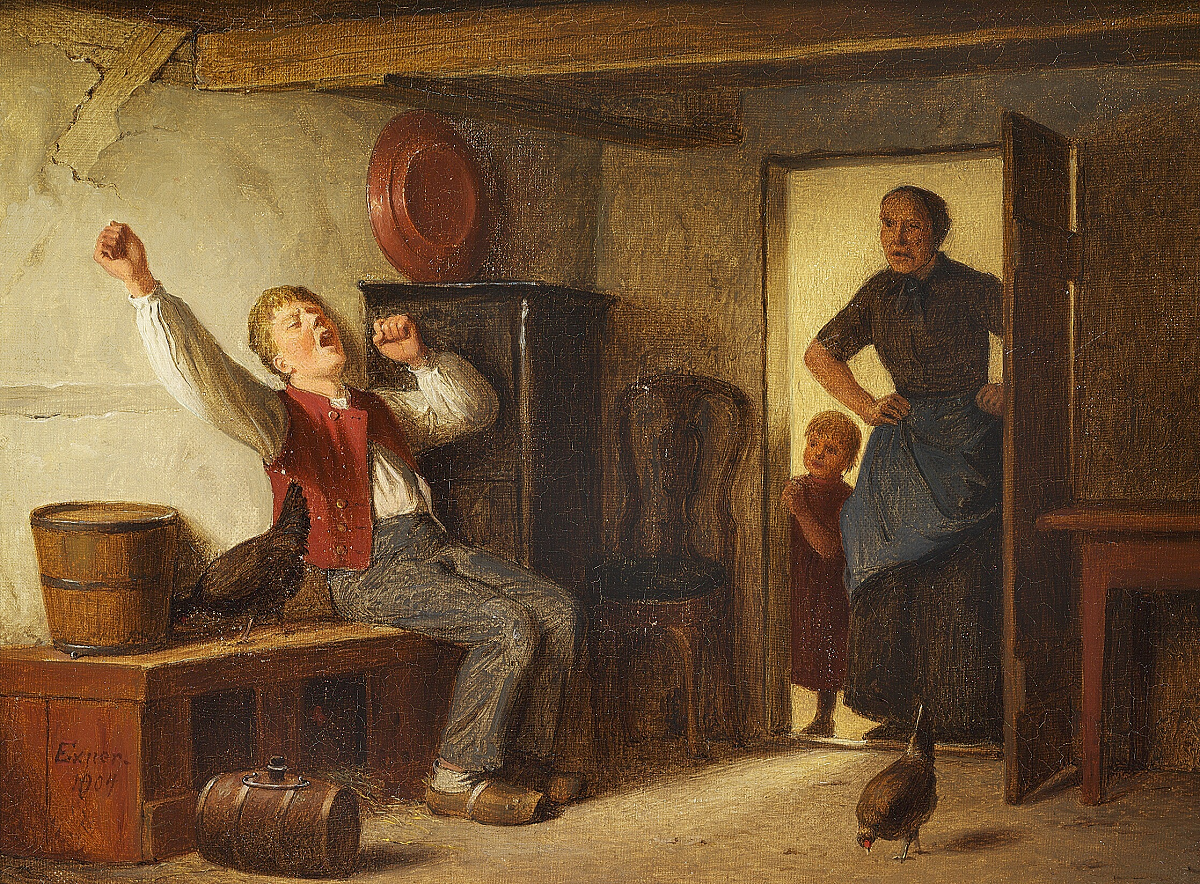By Amber Kinloch
Sloth is a hard sin to define. We tend to picture it as idleness or laziness. But sloth goes far beyond the physical. “Sloth is a sorrow, sadness, or aversion to the good things God offers. Rather than being joyful and zealous to obtain these gifts, the slothful person sees them as too much trouble to obtain and is averse to the changes such gifts might introduce into his life” (“A Study of Sloth in the Life of Lot” by Monsignor Charles Pope).
Sloth can be a difficult sin to identify. The other capital sins are “active” sins: we consciously choose to do something evil. Sloth is a sin of omission: we fail to do something good. It is easy to dismiss because we’re not actively doing any harm—or so we think.
How Sloth Manifests Itself
A slothful spirit shows itself in an occupation with unnecessary things. Maybe we’re absorbed in the search for bodily ease and comfort. Or we’re swept up in seeking attention and admiration through the use of social media or too much talking. Perhaps we’re workaholics, neglecting the duties of our state of life (e.g., our relationships with others), or we procrastinate with trivial things. In doing all this, we seek—consciously or not—to avoid God, neglecting the spiritual life with the excuse that we have no time for it.
Sloth also manifests in distraction. When we pray, we are sluggish and inattentive; we make no effort to put our heart into talking with God. Instead, we allow ourselves to be overpowered by a sense of dullness or weariness. This weariness is not rooted in spiritual dryness, but in “an inaction of the will which destroys love” (The Seven Capital Sins, Tan Books, pg. 43). Through our own lack of effort, we make fulfilling God’s Will a burden instead of a joyful duty.
Then there is spiritual melancholy, “a secret anger with ourselves and a species of self-love. Because of it, we have no courage to break with our faults and imperfections, with our habits of sin, and we feel a sense of despair” (The Seven Capital Sins, pg. 41). This melancholy is like a poison that infects our whole spiritual life, slowly sickening our souls even to the point of spiritual death.
Further Dangers of Sloth
Let’s not be mistaken—sloth is a very dangerous sin. It can keep us from drawing close to God through prayer and the sacraments, or can dilute their effects because we approach them only in a half-hearted manner. It saps away the joy we should find in serving God, and makes life seem a bore as we grow ever more uneasy, discontented, and restless.
At the same time, yielding to sloth leads us to other sins. Our occupation with unnecessary things can lead to sins of lust, gluttony, and greed. If melancholy plagues our hearts and minds, envy, anger, and pride may easily find an entrance.
Worst of all, sloth can lead us to cease to care about God, others, and even our own salvation. I remember reading an interview someone did with a hospital chaplain. The priest said about fifty percent of the time when he enters the room of someone who’s dying, he’s turned away. People are oblivious to the grave situation they’re in. As long as they’re comfortable and can watch TV, everything is fine.
We might say, “I won’t be that way.” But if we don’t take action, we very well might be. As C.S. Lewis reminds us, we don’t need to commit sins like murder to land in Hell. As a matter of fact, “the safest road to Hell is the gradual one—the gentle slope, soft underfoot, without sudden turnings, without milestones, without signposts” (The Screwtape Letters). This is the road trod by those who don’t vigorously combat sloth.
Fighting Sloth
Sloth is rooted in indifference and fear. Instead of being a hot sin like anger, which is driven by passion, sloth is a sin of coldness. The antidote to this coldness is the fire of love.
Our great ally here is the Holy Spirit, Love Himself. We should call vigorously upon Him, asking Him to inflame in us the fire of love. We might especially ask for an increase in His sevenfold gifts. (This novena gives a nice explanation of the gifts and their purposes.)
A second important point is frequent and intentional recourse to the sacraments. Confession will help keep us accountable, while time with our Eucharistic Lord at Mass and in Adoration will deepen our love.
Meditating on Christ’s Passion and death is another help. Think of the Apostles asleep in the Garden and of all the Jews who silently stood by as Jesus carried His Cross to Calvary. They might not have actively been raining blows on Him, and yet how much suffering they inflicted through their indifference and cowardice.
Remember the parable of the three servants given different numbers of talents? The servant given one talent is a coward. He buries it in the ground instead of putting it to use as his master wished. For this, he is condemned (Matthew 25:14-30). Similarly, in the parable of the sheep and the goats, the goats (unrepentant sinners) are condemned for neglecting to perform various works of mercy (Matthew 25:31-46). Failing to do the good we’re called to do warrants punishment as much as committing evil.
There are also certain virtues we might strive to cultivate. Diligence and zeal, for instance, in fulfilling our duties, embracing what we should do instead of avoiding it or going about it half-heartedly. Faith, to overcome the lack of trust that sloth springs from. Magnanimity, that greatness of mind and heart which makes us aspire to high and noble goals instead of shrinking back from fear. Justice, rendering God and others their due. Lastly, charity.
Let’s vigorously work to root sloth out of our lives. The struggle may be a lifelong one, but there is no cause to be discouraged. Remember the stakes. The time is short and there’s much to do. Now is the time to awaken from slumber, for there may be no tomorrow.

Amber Kinloch
Amber writes from the bunker of her living room. There she hunkers down with her laptop and a blanket while keeping an eye and ear tuned in to the activity of family life. Music set on loop keeps her energy flowing as she muses on the deeper happenings of ordinary life and what food to restock the fridge with.






0 Comments